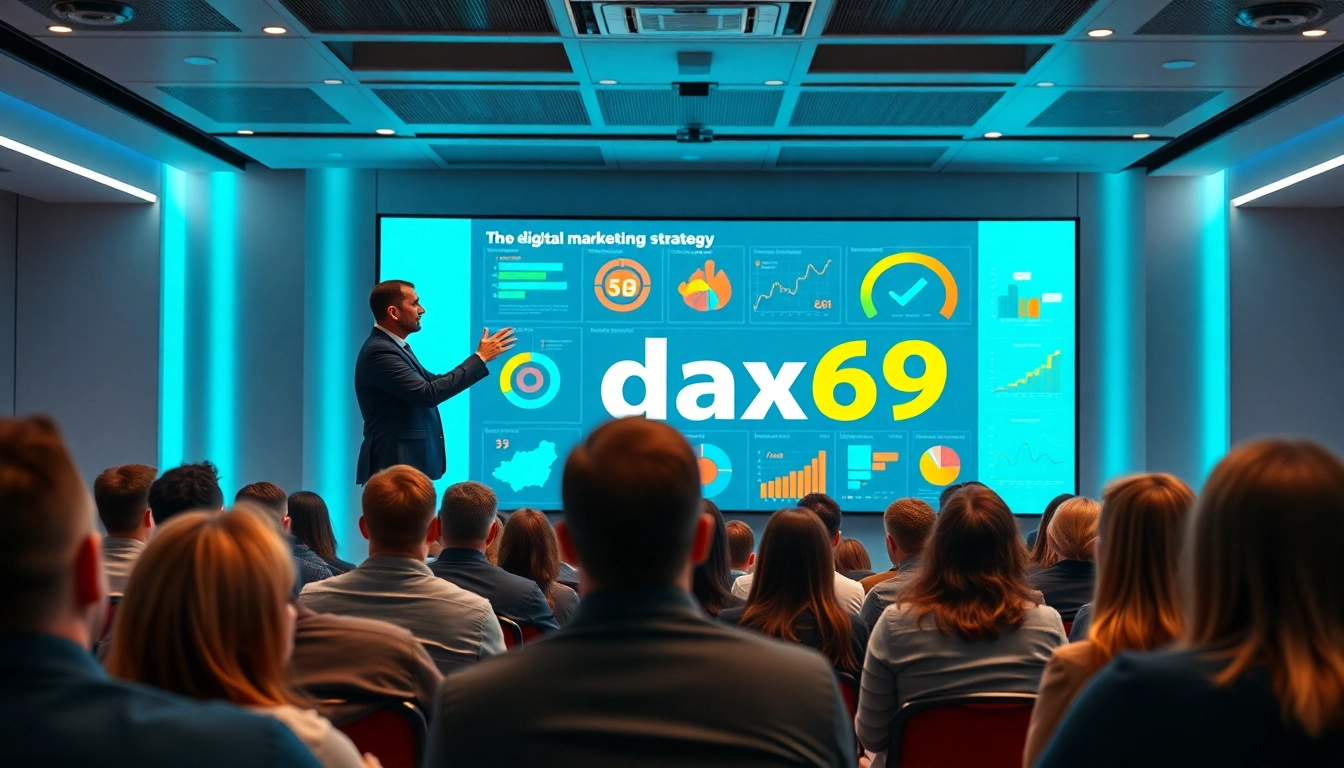Introduction to AI Marketing Tools
In today’s fast-paced digital landscape, businesses are increasingly turning to AI marketing tools to enhance their marketing strategies. These powerful assets leverage artificial intelligence to streamline processes, automate repetitive tasks, and ultimately drive more effective marketing outcomes. This article explores the evolving realm of AI marketing tools, from their fundamental principles to the latest innovations that are reshaping how companies connect with their audiences.
What Are AI Marketing Tools?
AI marketing tools are software applications that utilize artificial intelligence to assist in various marketing functions, including consumer insights, campaign management, content creation, and customer engagement. These tools analyze large datasets to identify patterns, predict outcomes, and recommend actions, enabling marketers to make data-driven decisions. With capabilities ranging from chatbots to predictive analytics, AI marketing tools have become indispensable across diverse marketing activities.
Benefits of Using AI in Marketing
The integration of AI in marketing is transforming the industry by offering several key benefits:
- Enhanced Efficiency: AI tools automate time-consuming tasks such as data entry, email marketing, and social media management, enabling marketers to allocate their resources more effectively.
- Improved Customer Insights: AI can analyze customer data to provide deeper insights into consumer behavior, preferences, and trends, allowing businesses to tailor their marketing strategies.
- Personalization: By utilizing AI, marketers can deliver highly personalized content and recommendations based on individual customer journeys, leading to improved engagement and conversion rates.
- Predictive Analytics: AI enables businesses to forecast future trends and customer behaviors, allowing for proactive marketing strategies that can adapt to changes in the market.
- Cost Savings: By improving efficiency and automating processes, AI marketing tools can lead to significant cost reductions over time.
How AI Reshapes Marketing Strategies
AI is fundamentally reshaping marketing strategies by enabling a more data-driven approach. Traditionally, marketing relied heavily on intuition and past experiences. With the advent of AI, marketers can make educated decisions backed by data analytics. AI tools facilitate:
- Segmentation: AI can segment audiences with precision, allowing businesses to target specific demographics with tailored messaging.
- A/B Testing: AI can efficiently conduct A/B tests to determine which marketing tactics yield the best results.
- Dynamic Content Creation: Tools are available to generate content that dynamically adapts based on user interactions and preferences.
Key Features of Effective AI Marketing Tools
Automation and Efficiency
One of the hallmark features of effective AI marketing tools is their ability to automate tasks. From scheduling social media posts to sending out email campaigns, automation simplifies marketing efforts and reduces overall workload. For instance, AI algorithms can manage customer relationship management (CRM) tasks, ensuring timely communications without manual intervention.
Data Analysis Capabilities
AI marketing tools are equipped with advanced data analysis capabilities that allow marketers to gain actionable insights. These tools can process vast amounts of data in real-time, identifying trends and patterns that might not be immediately apparent to human analysts. For example, platforms like Google Analytics offer AI-driven insights on customer behavior, helping make informed decisions about product offerings and marketing efforts.
Personalization and Customer Engagement
Personalization has become critical in enhancing customer engagement, and AI marketing tools facilitate this by analyzing customer data to create personalized experiences. By utilizing AI, marketers can deliver tailored recommendations, dynamic content, and targeted messages that resonate with individual customers, thereby improving engagement and loyalty.
Top AI Marketing Tools to Consider in 2025
Leading Platforms Overview
As we look into 2025, several AI marketing tools stand out due to their robust capabilities and positive user feedback:
- HubSpot: A comprehensive marketing platform offering tools for CRM, content management, and automation, HubSpot’s AI capabilities assist in segmentation and personalized marketing.
- Jasper: Known for generating high-quality written content, Jasper’s AI helps marketers create compelling copy that drives conversions.
- Drift: A leader in conversational marketing, Drift uses AI to enhance customer interactions via chatbots, ensuring immediate responses to customer inquiries.
- Canva: With AI functionality, Canva allows users to generate designs and visuals quickly, essential for social media marketing.
- Surfer SEO: This tool combines AI with SEO optimization features to improve content visibility and ranking on search engines.
Comparison of Popular Tools
When assessing various AI marketing tools, consider the following metrics to determine the best fit for your business:
| Tool | Core Features | Pricing | User Rating |
|---|---|---|---|
| HubSpot | CRM, Automation, Analytics | Starting at $45/month | 4.5/5 |
| Jasper | Content Generation | Starting at $29/month | 4.8/5 |
| Drift | Chatbot, Lead Generation | Starting at $50/month | 4.6/5 |
| Canva | Design Tools, Templates | Free with Pro options | 4.7/5 |
| Surfer SEO | SEO Analysis, Optimization | Starting at $49/month | 4.5/5 |
User Reviews and Case Studies
Understanding real-world applications of AI marketing tools helps evaluate their effectiveness. For instance, a case study involving HubSpot illustrated how a retail company improved customer engagement by 30% after integrating HubSpot’s AI-driven recommendations into their email marketing strategy. Similarly, businesses utilizing Jasper reported a 40% increase in conversion rates due to enhanced content quality and relevance.
Implementing AI Marketing Tools in Your Business
Step-by-Step Integration Guide
Implementing AI marketing tools requires a systematic approach:
- Identify Needs: Assess your marketing objectives and determine which tasks could benefit from AI integration.
- Choose the Right Tool: Based on your needs, select an AI marketing tool that aligns with your objectives.
- Data Integration: Ensure seamless integration of existing customer data for the selected tool to function effectively.
- Training: Provide training to your marketing team on how to utilize the tool efficiently.
- Launch and Monitor: Roll out the tool and continuously monitor its performance to make necessary adjustments.
Measuring Success with KPIs
To gauge the effectiveness of AI marketing tools, establish key performance indicators (KPIs). Common KPIs include:
- Engagement Rate: Measure how often customers interact with personalized campaigns.
- Conversion Rate: Track the percentage of leads converted to customers through AI-driven insights.
- Return on Investment (ROI): Assess the financial return attributed to the use of AI tools versus the costs incurred.
Common Challenges and Solutions
While adopting AI marketing tools can yield significant benefits, it can also present challenges, such as:
- Data Quality: Poor data quality can impede AI effectiveness. Ensure that your data is accurate and relevant.
- Resistance to Change: Employees may resist adopting new technologies. Providing adequate training and demonstrating the tool’s value can help alleviate these concerns.
- Integration Issues: Problems may arise during tool integration. Working with IT specialists can ensure a smooth transition.
The Future of AI in Marketing
Emerging Trends to Watch
The future of AI in marketing promises further innovation, with trends including:
- Increased Personalization: AI will pave the way for even more personalized experiences that cater to individual user preferences.
- Voice Search Optimization: With the rise of voice-activated devices, optimizing content for voice search is becoming more essential.
- AI-Driven Content Creation: Tools that automate the entire content creation process will become more prevalent, revolutionizing how businesses approach content marketing.
Preparing for New AI Innovations
To stay ahead in the evolving AI landscape, businesses should focus on continuous learning and adaptability. Keeping abreast of the latest AI developments, investing in team education, and experimenting with new AI tools will be crucial for maintaining a competitive edge.
Final Thoughts on AI Marketing Tools
AI marketing tools are more than just a trend; they are a pivotal component of modern marketing strategies. By effectively leveraging these tools, businesses can enhance efficiency, personalize customer interactions, and drive data-informed decisions. As AI technology advances, embracing these tools will likely be essential for companies looking to remain competitive in an ever-evolving marketplace.















Leave a Reply